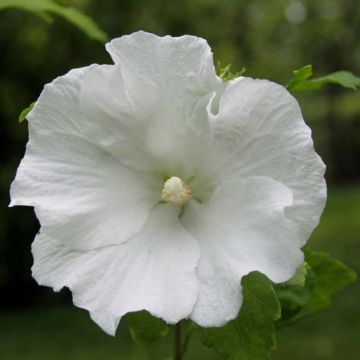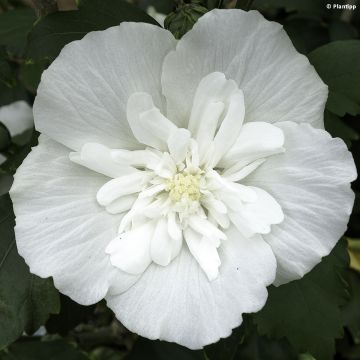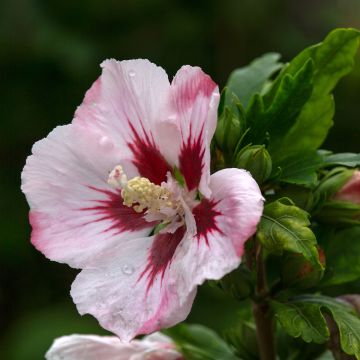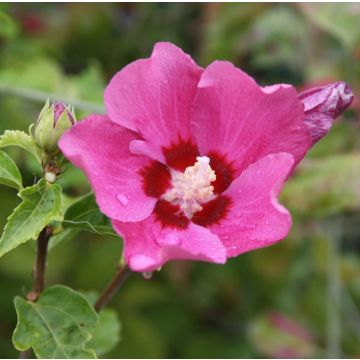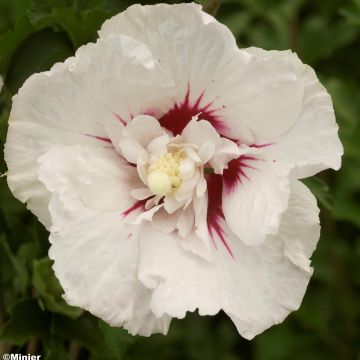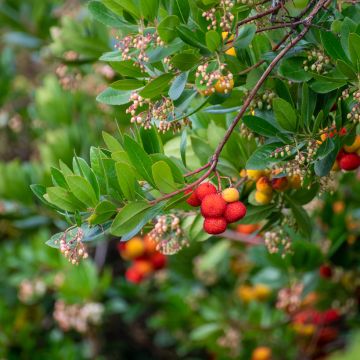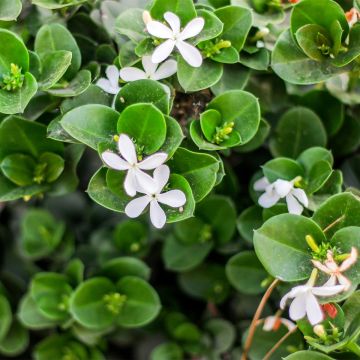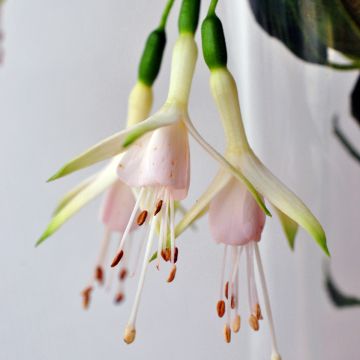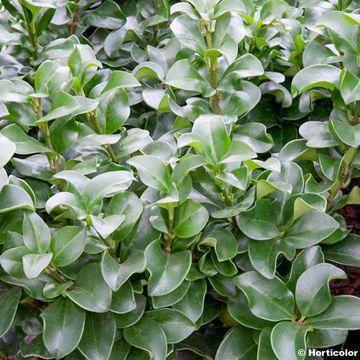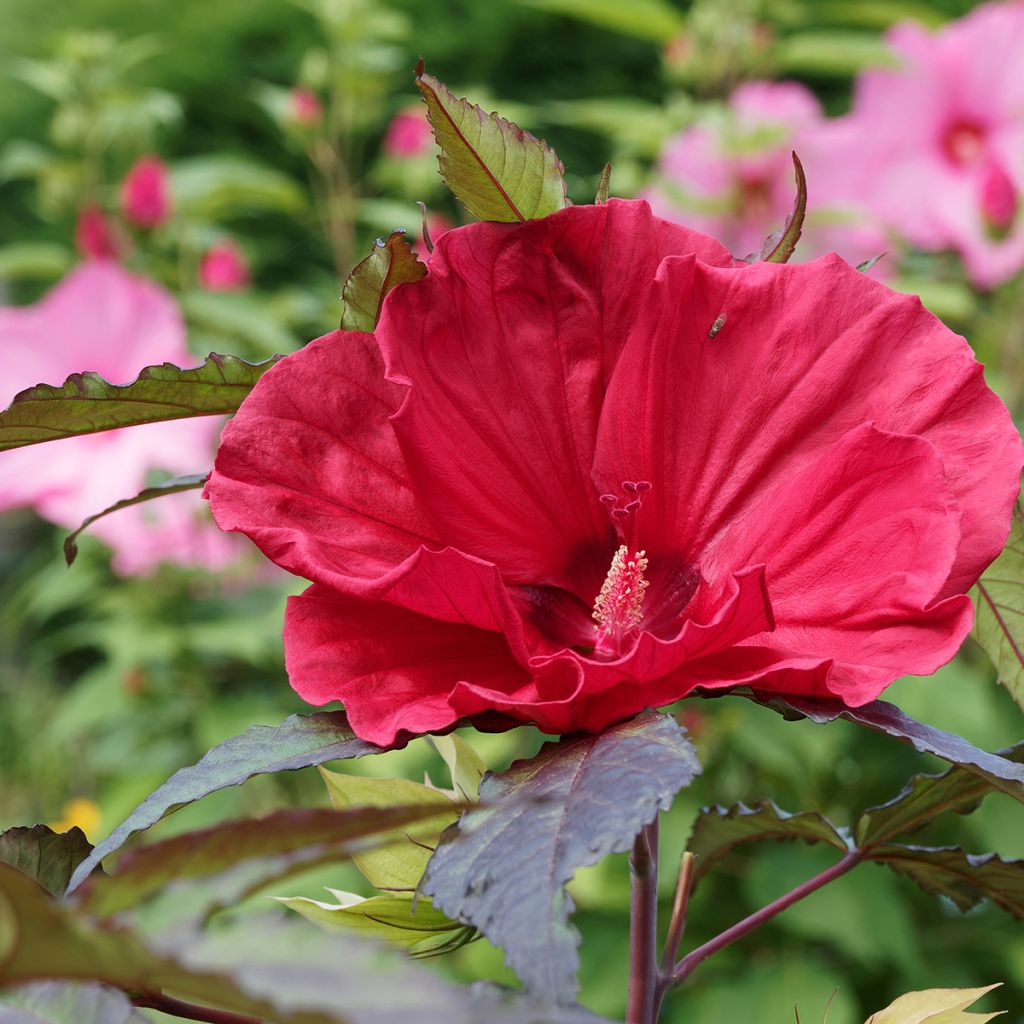

Hibiscus moscheutos Midnight Marvel - Swamp Rose Mallow
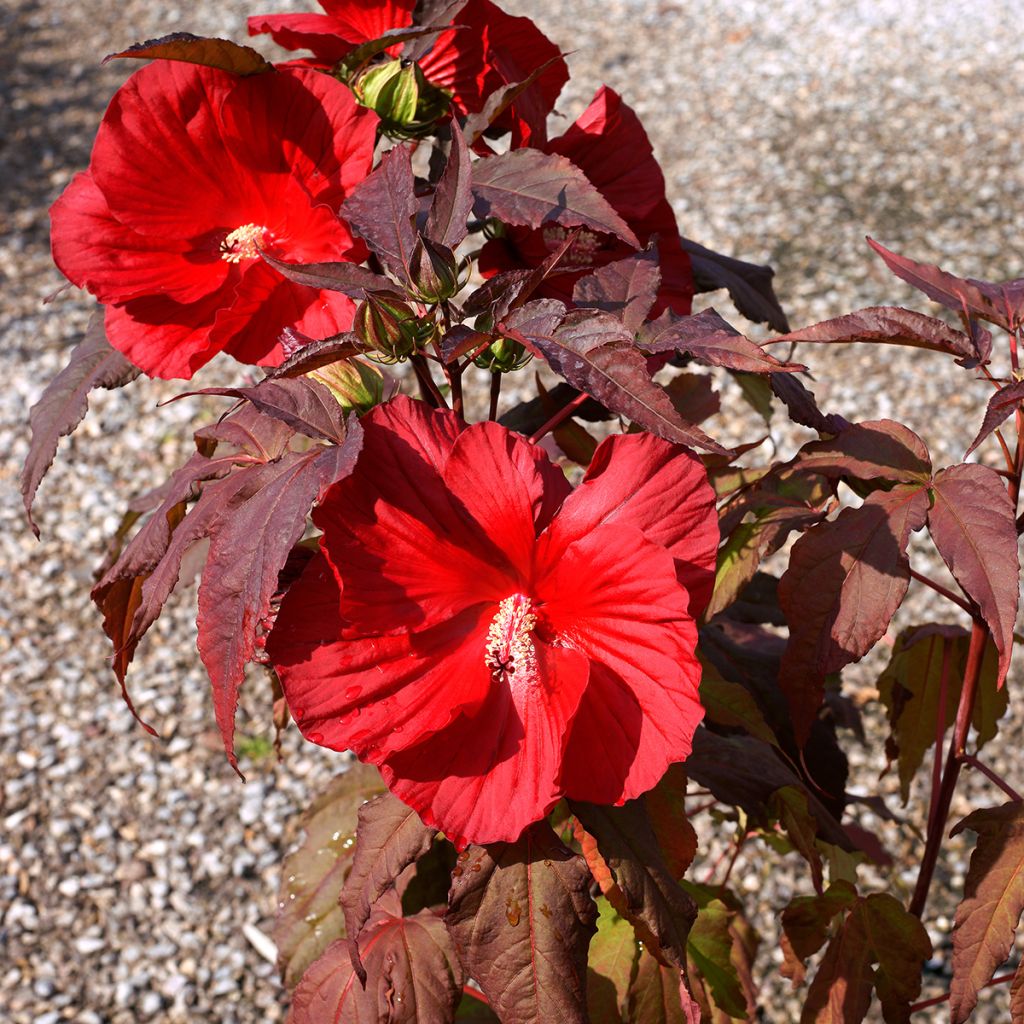

Hibiscus moscheutos Midnight Marvel - Swamp Rose Mallow
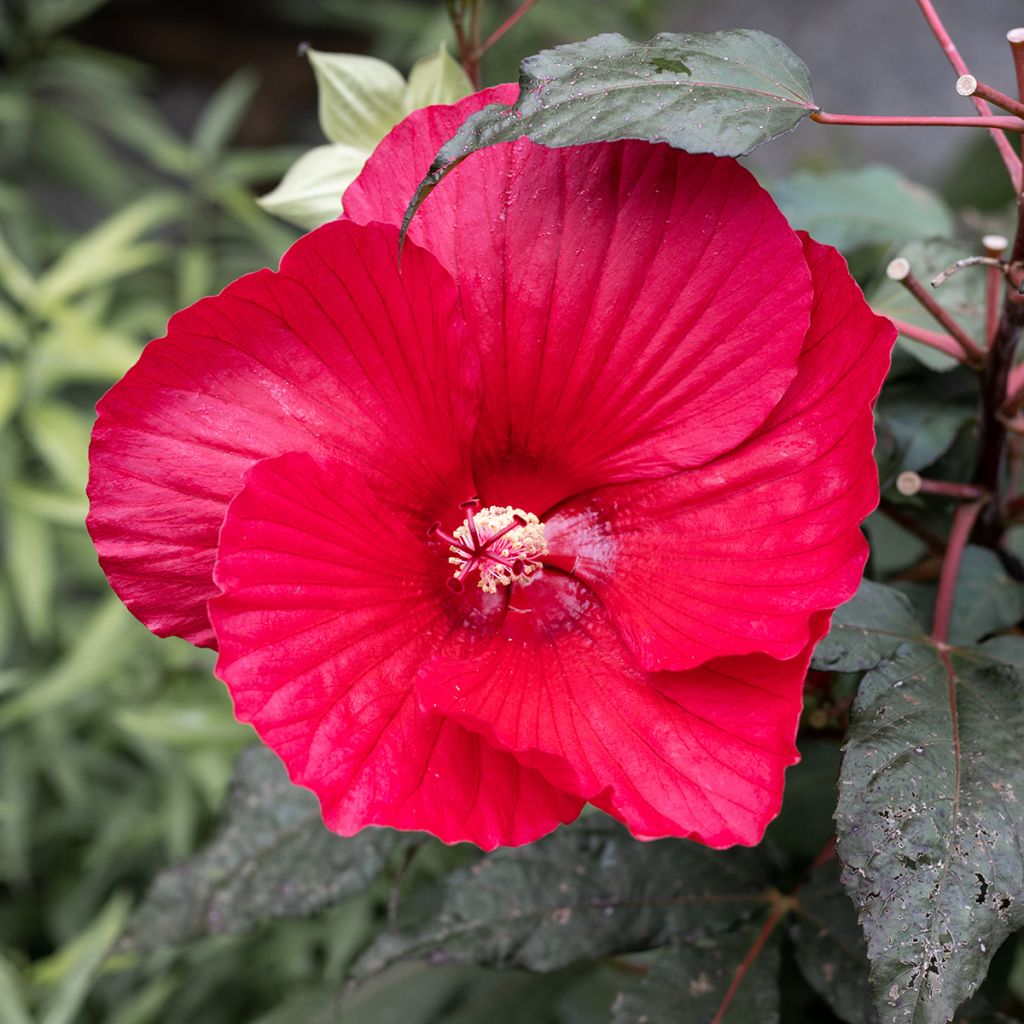

Hibiscus moscheutos Midnight Marvel - Swamp Rose Mallow


Hibiscus moscheutos Midnight Marvel - Swamp Rose Mallow


Hibiscus moscheutos Midnight Marvel - Swamp Rose Mallow
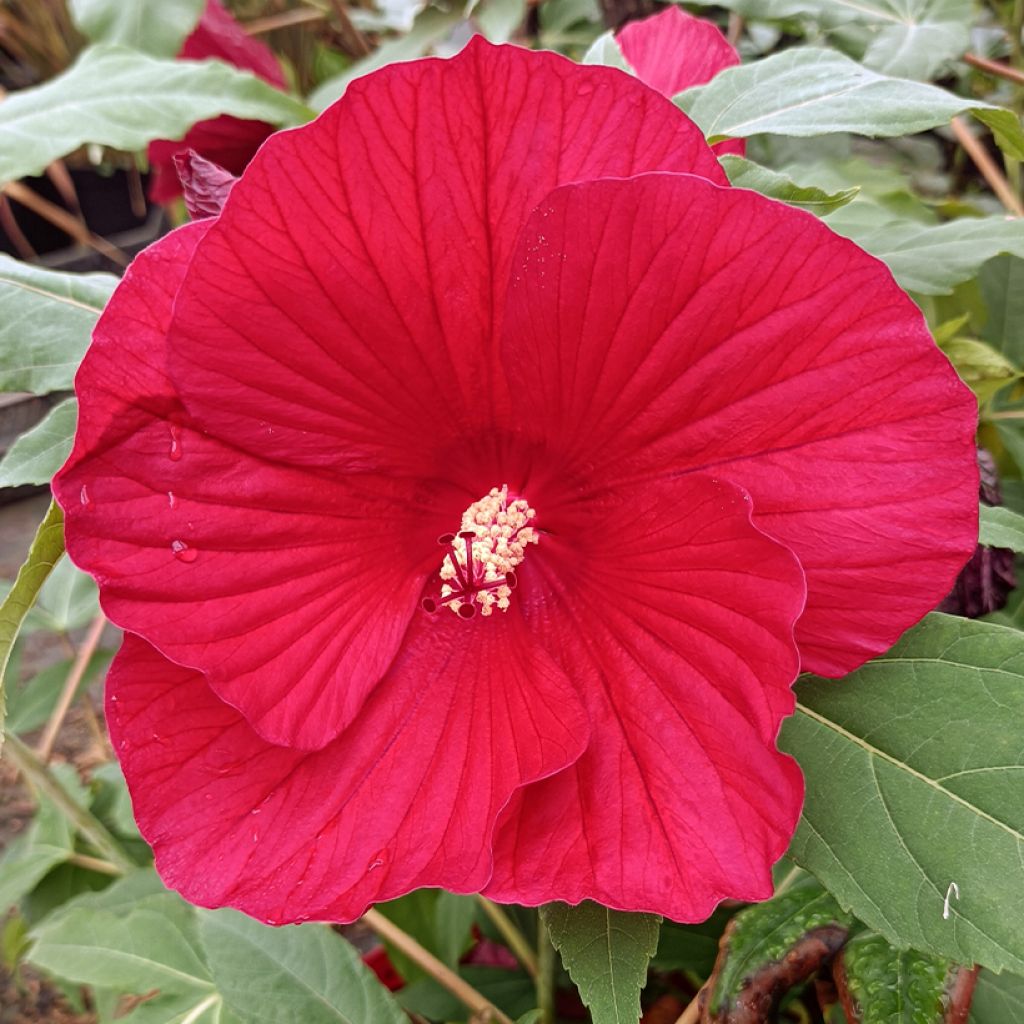

Hibiscus moscheutos Midnight Marvel - Swamp Rose Mallow


Hibiscus moscheutos Midnight Marvel - Swamp Rose Mallow
View more pictures
Hide images

Benjamin L.

Beginning of flowering, July 2022
Benjamin L. • 26 FR
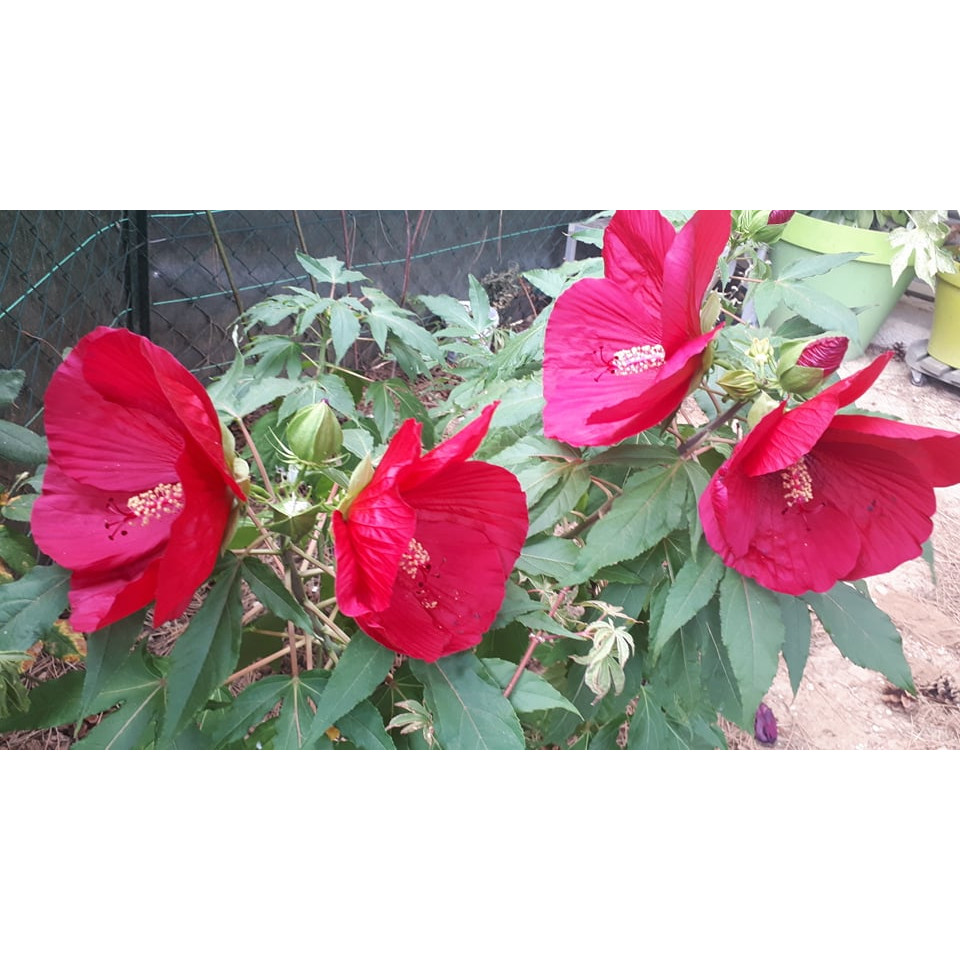
Benjamin L.

The foliage stays quite green in partial shade.
Benjamin L. • 26 FR
Hibiscus moscheutos Midnight Marvel - Swamp Rose Mallow
Hibiscus moscheutos Midnight Marvel SUMMERIFIC
Swamp Rose Mallow, Eastern Rose Mallow, Crimsoneyed Rose Mallow, Marsh Hibiscus
Plant very small... Very disappointed. Parcel prepared on Saturday and arrived 10 days later....
Fred, 14/06/2025
Special offer!
Receive a €20 voucher for any order over €90 (excluding delivery costs, credit notes, and plastic-free options)!
1- Add your favorite plants to your cart.
2- Once you have reached €90, confirm your order (you can even choose the delivery date!).
3- As soon as your order is shipped, you will receive an email containing your voucher code, valid for 3 months (90 days).
Your voucher is unique and can only be used once, for any order with a minimum value of €20, excluding delivery costs.
Can be combined with other current offers, non-divisible and non-refundable.
Why not try an alternative variety in stock?
View all →This plant carries a 24 months recovery warranty
More information
We guarantee the quality of our plants for a full growing cycle, and will replace at our expense any plant that fails to recover under normal climatic and planting conditions.
Would this plant suit my garden?
Set up your Plantfit profile →
Description
The 'Midnight Marvel' Hibiscus moscheutos is a spectacularly hardy perennial for wet terrain. From July to September, it produces huge scarlet flowers, reaching up to 20 cm (7.9 in) in diameter. The lush purple and serrated foliage will bring a touch of exoticism to your borders, either by a pond in a rich substrate, or in a large pot kept constantly moist, in full sun.
The marsh hibiscus belongs to the Malvaceae family.If we are familiar with shrubby hibiscus, from the same family and frequently planted in our gardens, we less often come across Hibiscus moscheutos (formerly H. palustris). This giant perennial, also known as Marsh Mallow, is native to the marshy areas of the Eastern United States and can grow stems over 2 metres (6 feet 7 inches) tall. In our climate it generally remains more modest and emerges quite late in spring, between April and May. Its growth is then rapid: in a few weeks, it forms a luxuriant shrub of upright stems, adorned with large, pointed lobed leaves, from a thick base. From the middle of summer until early autumn, huge flowers appear, with wide open cups and large, slightly crumpled petals. In the centre, a long tube formed by the fused stamens adds a lot of grace to the flower. In autumn, the foliage also takes on beautiful golden colours, then the plant disappears.
The 'Midnight Marvel' Hibiscus is a compact variety that forms a dense clump 1.20 to 1.50 m (3 ft 11 in to 4 ft 11 in) tall and wide. Beautiful buds of almost black red give rise to very large flowers, appearing between July and September and reaching 20 cm (7.9 in) in diameter. They are scarlet red, with golden stamens standing out on the heart. The foliage is also spectacular: cut like a maple leaf, the thick lamina is reddish purple, in perfect contrast to the flowers. This variety belongs to the Summerific series, obtained by Walter Gardens nurseries in the United States, which is characterised by a modest size and great floribundity.
The 'Midnight Marvel' Marsh Mallow is, as its name suggests, fond of moist soils. If the soil is rich and constantly moist, the plant will show vigorous growth. In dry or poor soil, it will give mediocre results. Additionally, it requires plenty of sun to express its full flowering potential, and this variety benefits even more from the colouring of its foliage. Despite its exotic appearance, it is hardy and will withstand temperatures down to -12, or even -15 °C without any problems. Undoubtedly, it is a perennial that has a lot of presence in the garden, and it should be placed judiciously: mix it with other giant plants to create a striking display for example Atropurpureum spotted Joe-Pye weed, Sikkim banana tree, Himalayan Arum, palmate rhubarb, or even the tree fern Dicksonia antarctica. If your soil is not moist enough, choose to grow it in a large container, which will give you very good results as long as the substrate does not dry out - you can then enjoy it on your terrace!
Report an error about the product description
Hibiscus moscheutos Midnight Marvel - Swamp Rose Mallow in pictures




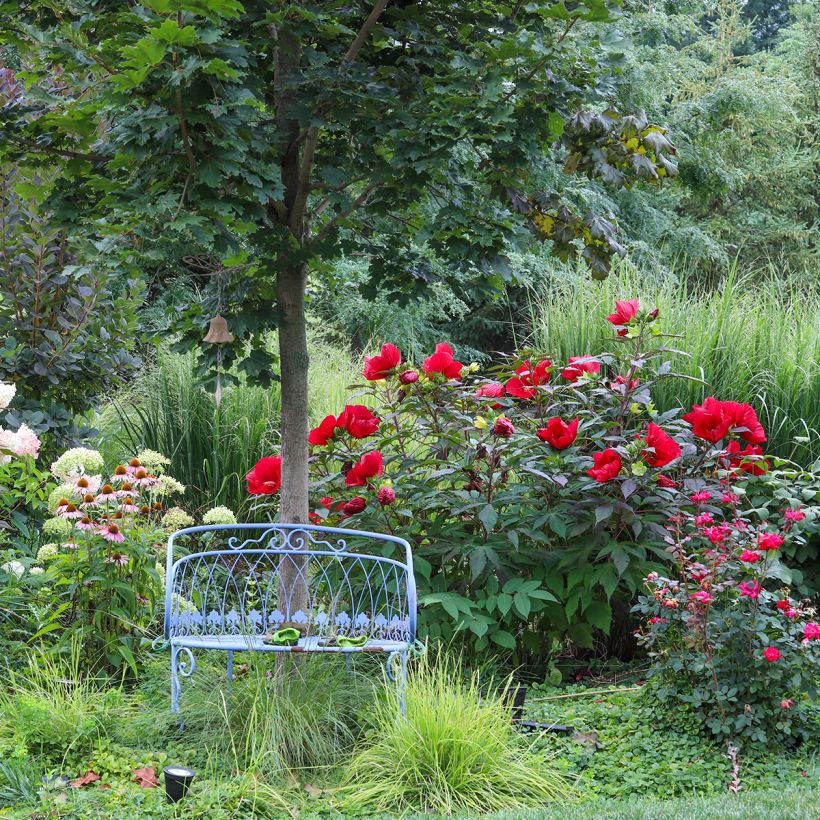

Plant habit
Flowering
Foliage
Botanical data
Hibiscus
moscheutos
Midnight Marvel SUMMERIFIC
Malvaceae
Swamp Rose Mallow, Eastern Rose Mallow, Crimsoneyed Rose Mallow, Marsh Hibiscus
Cultivar or hybrid
Planting and care
The Hibiscus genus includes perennials that disappear above ground in winter. These marsh plants can be planted alongside Hardy Hibiscus or cold-hardy banana plants in warm and moist soil. While hardy down to -15°C (5 °F) in our garden, they require winter protection in colder climates. Protecting the stump from excessive winter moisture helps the plant withstand the cold better.
To create a bed, dig a hole 40 cm (15.7 in) in all directions, line it with waterproof film and fill it with a mixture of good garden soil and fertiliser. Keep the soil moist during the shooting and flowering period. In October, when the leaves turn yellow, keep the soil moist and trim the stems to 5 cm (2 in) above the ground in late autumn. Growth restarts late in the spring, April-May, depending on the climate.
Planting period
Intended location
Care
-
, onOrder confirmed
Reply from on Promesse de fleurs
Similar products
Haven't found what you were looking for?
Hardiness is the lowest winter temperature a plant can endure without suffering serious damage or even dying. However, hardiness is affected by location (a sheltered area, such as a patio), protection (winter cover) and soil type (hardiness is improved by well-drained soil).

Photo Sharing Terms & Conditions
In order to encourage gardeners to interact and share their experiences, Promesse de fleurs offers various media enabling content to be uploaded onto its Site - in particular via the ‘Photo sharing’ module.
The User agrees to refrain from:
- Posting any content that is illegal, prejudicial, insulting, racist, inciteful to hatred, revisionist, contrary to public decency, that infringes on privacy or on the privacy rights of third parties, in particular the publicity rights of persons and goods, intellectual property rights, or the right to privacy.
- Submitting content on behalf of a third party;
- Impersonate the identity of a third party and/or publish any personal information about a third party;
In general, the User undertakes to refrain from any unethical behaviour.
All Content (in particular text, comments, files, images, photos, videos, creative works, etc.), which may be subject to property or intellectual property rights, image or other private rights, shall remain the property of the User, subject to the limited rights granted by the terms of the licence granted by Promesse de fleurs as stated below. Users are at liberty to publish or not to publish such Content on the Site, notably via the ‘Photo Sharing’ facility, and accept that this Content shall be made public and freely accessible, notably on the Internet.
Users further acknowledge, undertake to have ,and guarantee that they hold all necessary rights and permissions to publish such material on the Site, in particular with regard to the legislation in force pertaining to any privacy, property, intellectual property, image, or contractual rights, or rights of any other nature. By publishing such Content on the Site, Users acknowledge accepting full liability as publishers of the Content within the meaning of the law, and grant Promesse de fleurs, free of charge, an inclusive, worldwide licence for the said Content for the entire duration of its publication, including all reproduction, representation, up/downloading, displaying, performing, transmission, and storage rights.
Users also grant permission for their name to be linked to the Content and accept that this link may not always be made available.
By engaging in posting material, Users consent to their Content becoming automatically accessible on the Internet, in particular on other sites and/or blogs and/or web pages of the Promesse de fleurs site, including in particular social pages and the Promesse de fleurs catalogue.
Users may secure the removal of entrusted content free of charge by issuing a simple request via our contact form.
The flowering period indicated on our website applies to countries and regions located in USDA zone 8 (France, the United Kingdom, Ireland, the Netherlands, etc.)
It will vary according to where you live:
- In zones 9 to 10 (Italy, Spain, Greece, etc.), flowering will occur about 2 to 4 weeks earlier.
- In zones 6 to 7 (Germany, Poland, Slovenia, and lower mountainous regions), flowering will be delayed by 2 to 3 weeks.
- In zone 5 (Central Europe, Scandinavia), blooming will be delayed by 3 to 5 weeks.
In temperate climates, pruning of spring-flowering shrubs (forsythia, spireas, etc.) should be done just after flowering.
Pruning of summer-flowering shrubs (Indian Lilac, Perovskia, etc.) can be done in winter or spring.
In cold regions as well as with frost-sensitive plants, avoid pruning too early when severe frosts may still occur.
The planting period indicated on our website applies to countries and regions located in USDA zone 8 (France, United Kingdom, Ireland, Netherlands).
It will vary according to where you live:
- In Mediterranean zones (Marseille, Madrid, Milan, etc.), autumn and winter are the best planting periods.
- In continental zones (Strasbourg, Munich, Vienna, etc.), delay planting by 2 to 3 weeks in spring and bring it forward by 2 to 4 weeks in autumn.
- In mountainous regions (the Alps, Pyrenees, Carpathians, etc.), it is best to plant in late spring (May-June) or late summer (August-September).
The harvesting period indicated on our website applies to countries and regions in USDA zone 8 (France, England, Ireland, the Netherlands).
In colder areas (Scandinavia, Poland, Austria...) fruit and vegetable harvests are likely to be delayed by 3-4 weeks.
In warmer areas (Italy, Spain, Greece, etc.), harvesting will probably take place earlier, depending on weather conditions.
The sowing periods indicated on our website apply to countries and regions within USDA Zone 8 (France, UK, Ireland, Netherlands).
In colder areas (Scandinavia, Poland, Austria...), delay any outdoor sowing by 3-4 weeks, or sow under glass.
In warmer climes (Italy, Spain, Greece, etc.), bring outdoor sowing forward by a few weeks.
































